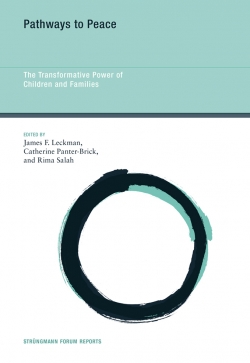Comparative and Evolutionary Perspectives
Comparative and Evolutionary Perspectives
Chapter 8 author: Dario Maestripieri
 Introduction
Introduction
Comparative animal research has gained evolutionary insight into why humans have aggressive or peaceful tendencies in particular environments. Individuals exposed to early stress, violence, harsh parenting, or unpredictable changes in the environment are more likely to have aggressive tendencies.
Aggressiveness and Peacefulness in Humans and Other Animals
Aggression is an expression of competition and different species have varying benefit-cost ratios for using aggression as a competitive strategy. The benefit of aggression is gaining resources, like food, space, and mates. The cost of aggression is psychological and physical damage. When the cost to benefit ratio lowers, humans become less aggressive. Changes throughout history have lowered the ratio and thus led to lower aggression.
Early Environment and Individual Differences in Aggressiveness and Peacefulness: Life History Theory
Life history theory addresses how individual organisms allocate time and energy for growth, reproduction, mating, and parenting. Factors in the environments elicit different life history strategies, including resource availability, the probability or death or illness in the environment, and the unpredictability of the environment. Variation in life history strategies can explain why some individuals suppress aggressive tendencies while others express aggression.
Empirical Research with Animal Models of Human Behavior and Development
As primates are phylogenetically closest to humans, they share similarities in behavior and psychology. Therefore, aggression has been studied primarily in primates. For example, studies of Rhesus Macaques have shown that early stressful experiences increase the risk for aggression and violent behaviors later in life.
Conclusions
Comparative animal research has suggested that individuals exposed to aggression and violence early in life have fast life history strategies. However, these studies also have limitations, as they do not look at the role of language and social, moral, and religious norms. Therefore, there are number of questions still unanswered about human aggression.
JOIN THE CONVERSATION
For breaking news and to stay connected, follow us on social media. Sign up to get our E-News delivered straight to your inbox.

